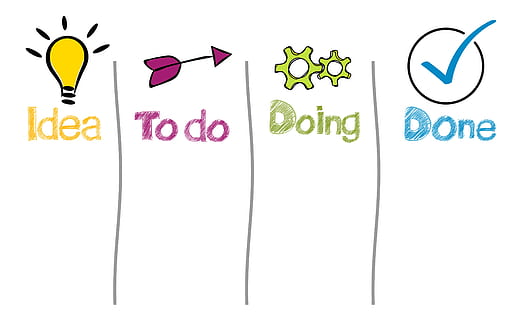Hey there, students from the school universe who love to travel through time! We’re looking at a magical space to crack the Time Management Code – it can make your learning journey much easier.
Picture finishing all your work, doing well in tests, and still having time to watch Netflix – yes you can! Yes it’s possible! So, get your imaginary time turners ready and let’s figure out the mysteries together.
 1. Keep a calendar or agenda. We might lose track of dates
2. Learn to say NO. ...
3. Allow ample time to relax your mind. ...
4. Prioritize, Do the most important things first. ...
5. Set some specific time for key tasks. ...
1. Keep a calendar or agenda. We might lose track of dates
2. Learn to say NO. ...
3. Allow ample time to relax your mind. ...
4. Prioritize, Do the most important things first. ...
5. Set some specific time for key tasks. ...Time-Warping 101: The Basics
Picture this: You have tasks, tests and friends that want your time.
Where do you begin? Fear not, young time management superman ! Make a list with things to do. It’s like a special spell that helps you do tasks one at a time and decide which ones are most important.

Top Time Management Books
- “Getting Things Done: The Art of Stress-Free Productivity” by David Allen:
- This classic by David Allen introduces the GTD methodology, offering a comprehensive system for organizing tasks, projects, and priorities to enhance productivity and reduce stress.
- “Eat That Frog!: 21 Great Ways to Stop Procrastinating and Get More Done in Less Time” by Brian Tracy:
- Brian Tracy’s book provides practical advice on overcoming procrastination and tackling high-priority tasks first. The title metaphorically suggests dealing with the most challenging task (eating a frog) early in the day.
- “The 7 Habits of Highly Effective People: Powerful Lessons in Personal Change” by Stephen R. Covey:
- While not solely focused on time management, Covey’s timeless principles in this book, such as “Put First Things First” and “Begin with the End in Mind,” are instrumental in effective time management.
- “Atomic Habits: An Easy & Proven Way to Build Good Habits & Break Bad Ones” by James Clear:
- James Clear’s book delves into the science of habits and how tiny changes can lead to remarkable results. Understanding and optimizing habits is a key aspect of effective time management.
- “Deep Work: Rules for Focused Success in a Distracted World” by Cal Newport:
- Cal Newport explores the concept of deep work – the ability to focus without distraction on a cognitively demanding task. The book provides strategies for cultivating deep work in the age of constant connectivity.
- “Essentialism: The Disciplined Pursuit of Less” by Greg McKeown:
- McKeown advocates for the pursuit of essential tasks and the elimination of non-essential activities. The book offers insights into prioritization and making deliberate choices to maximize impact.
- “Make Time: How to Focus on What Matters Every Day” by Jake Knapp and John Zeratsky:
- Knapp and Zeratsky provide a practical approach to time management, emphasizing the importance of making intentional choices to focus on what truly matters.
- “The Now Habit: A Strategic Program for Overcoming Procrastination and Enjoying Guilt-Free Play” by Neil A. Fiore:
- Neil Fiore addresses the issue of procrastination and offers strategies to overcome it, promoting a balanced approach that includes both work and leisure.
- “168 Hours: You Have More Time Than You Think” by Laura Vanderkam:
- Vanderkam challenges the notion of time scarcity and helps readers rethink their approach to time. The book encourages a holistic perspective on time management and aligning activities with personal and professional goals.
- “Time Management from the Inside Out: The Foolproof System for Taking Control of Your Schedule–and Your Life” by Julie Morgenstern:
- Julie Morgenstern provides a holistic approach to time management, focusing on individual strengths and preferences. The book offers practical advice on organizing tasks and maximizing productivity.
Juggling Acts and Study Spells
Have you ever tried juggling multiple tasks and keeping your balance on a unicycle? Okay, maybe not in that kind of way.
But student life can seem like it’s very busy and full of many activities to complete each day. The key to time management ? Split tasks into small parts. It’s similar to learning a spell – one wand wave each time.
The Art of Putting Off Things (Yes, that is What it Says!)
Wait, what? Procrastination as an art form? Absolutely! Use the Pomodoro way to work – do magic jobs for 25 minutes, then give yourself a fun break. Trust me, it’s a great thing that stops procrastination.

Time-Traveling to Success
Time management for students isn’t just about timetables; it is also about learning how to control the act of moving through separate times. No DeLorean required! Remain focused in every job, and observe the hours increase more than hare. It’s all about good stuff, not a lot.
Spells Personal in Study Pot
Now, I am going to tell you something special. In school days, I found the special power of using color in books. Everything had its own special color, and suddenly arranging my time turned into a joy for the eyes. Who knew that Hogwarts shared so much with my desk at home?
Parting advice to “Student Guide to Time Management “
Time-travel researchers, it’s time to buckle up, aim sharper, unravel the mysteries of personal time management. You might stumble upon a surprising discovery– a productivity elixir, your ticket to increased output. Enjoy the ride through time!
creative common image credits for this post Needpix.com, openclipart.com and wallpaperflare.com




